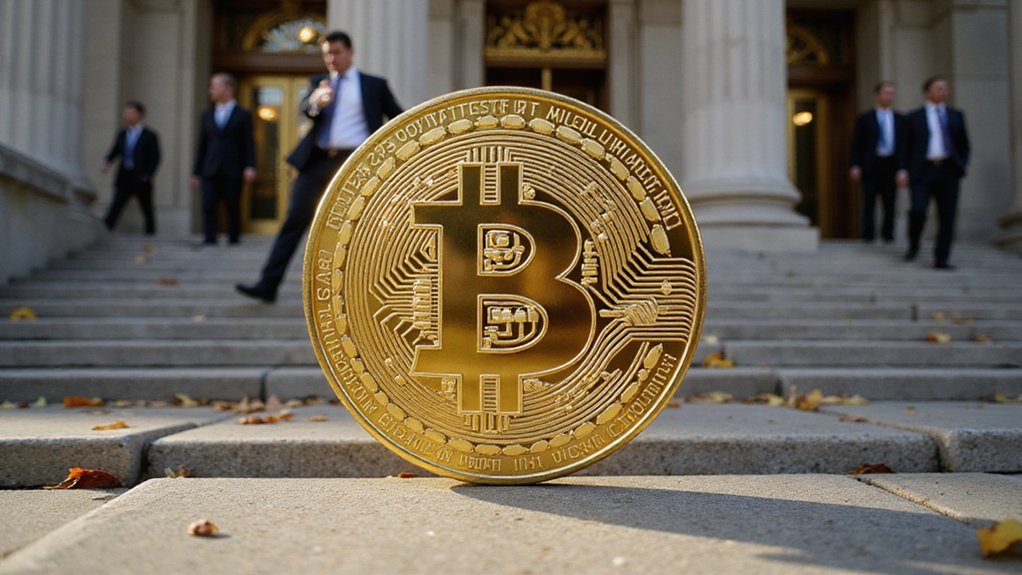A feeding frenzy of unprecedented proportions swept through corporate America’s C-suites during a five-day stretch in mid-July 2025, as twenty-one companies collectively deployed $810 million into Bitcoin—a figure that would have seemed fantastical just a few years ago when corporate treasurers were content parking excess cash in money market funds yielding fractions of a percent.
The arithmetic tells a compelling story: roughly 7,700 Bitcoin changed hands across fifty-eight corporate treasury updates, with Michael Saylor‘s MicroStrategy leading the charge by acquiring 4,225 BTC. The irrepressible Saylor, who has transformed his enterprise software company into what amounts to a publicly-traded Bitcoin proxy, continues defying conventional wisdom about corporate capital allocation with the fervor of a true believer.
This wasn’t merely an American phenomenon. Companies from Japan (Metaplanet with 797 BTC), France (Sequans with 683 BTC), and seven other countries participated in what resembled a coordinated assault on traditional treasury management principles.
Four entirely new corporate treasuries emerged during this period, collectively holding 817 BTC, while seventeen additional companies announced future Bitcoin acquisition plans—suggesting this represents the beginning rather than the crescendo of institutional adoption. While corporations accumulate Bitcoin through exchanges, individual miners continue joining mining pools to earn rewards through verification of these very transactions that corporate treasuries are facilitating.
Bitcoin’s ascent to $123,000 during this buying spree provided convenient validation for these treasury decisions, delivering year-to-date gains exceeding twenty-five percent while the S&P 500 managed a comparatively pedestrian 6.58% return. The U.S. dollar has simultaneously weakened by nearly 10% against foreign currencies, making Bitcoin’s performance even more attractive for multinational corporations.
Deutsche Bank’s research noted Bitcoin achieved this performance with historically lower volatility, though one suspects their definition of “lower volatility” might differ from that of traditional bond managers.
The institutional infrastructure supporting this shift has reached remarkable proportions. BlackRock’s iShares Bitcoin Trust commands approximately $80 billion in assets, while Bitcoin ETFs absorbed $50 billion in 2025 inflows alone. However, this enthusiasm contrasts sharply with February’s market turbulence, when investors withdrew nearly one billion dollars from bitcoin ETFs on February 25.
A single Thursday witnessed $1.17 billion flowing into U.S. Bitcoin ETFs—a daily figure that would constitute an excellent annual performance for many traditional funds.
This corporate embrace of Bitcoin as a treasury asset fundamentally challenges decades of conservative cash management doctrine. Companies are explicitly positioning Bitcoin as an inflation hedge and currency devaluation buffer, abandoning the safety-first mentality that previously governed corporate reserves in favor of a decidedly more adventurous approach to preserving shareholder value.









